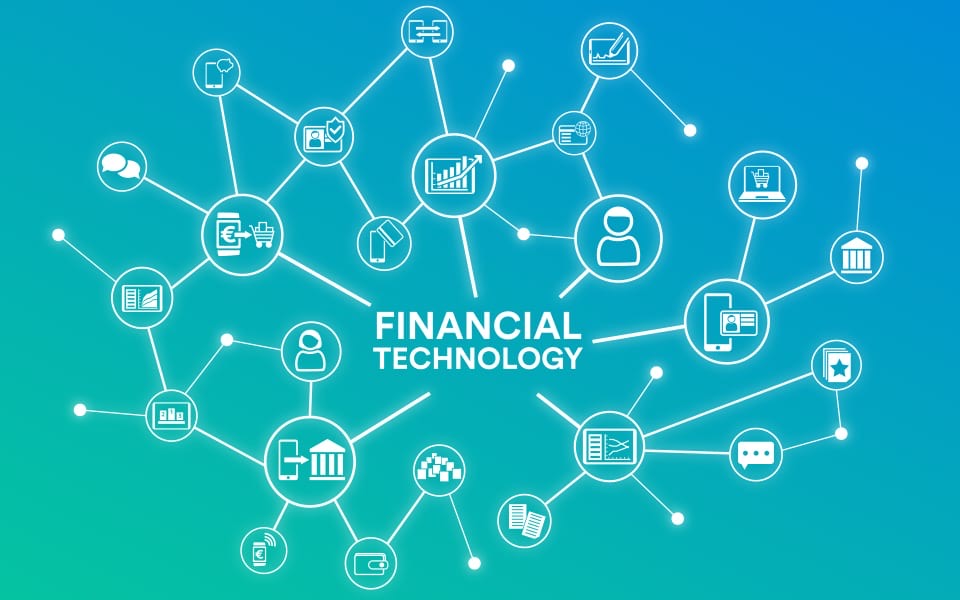
THE DIGITAL AGENDA: LEGAL REFORMS TO ACCOMMODATE FINTECH IN GHANA
- May 22, 2020
- 0 Comments
PART 1: DEVELOPMENT OF FINTECH
INTRODUCTION
On 21st March 2019, Ghana passed the Payment Systems and Services Act 2019 (Act 987), as part of her initiatives to digitise her economy. The 2024 Cash-lite Agenda by the Bank of Ghana is to- Foster efficient payments;[1]
- Improve financial inclusion; and
- Enhance financial innovations.
WHAT IS FINTECH?
As the world continues to push for a cashless society, many economies have seen a rise in Fintech (financial technology). Fintech broadly refers to computer programs and other technology used to support or facilitate banking and financial services. Popular examples of Fintech used in everyday life in include, crowdfunding platforms, blockchains and cryptocurrencies, mobile payments and budgeting applications.- Crowdfunding Platforms
- Blockchain and Cryptocurrency
- Mobile Payments
- Budgeting Applications
EVOLUTION OF FINTECH IN GHANA
The start of Fintech in Ghana may be attributed to the introduction of the Sika Card in 1997 by then Social Security Bank (now Société General) which allowed holders conduct cashless transactions. Its main function was to reduce the use of large sums of money for transactions. Subsequently, the Bank of Ghana, incorporated a subsidiary called the Ghana Interbank Payment and Settlement Systems (GhIPSS) Limited in 2007 with the aim of migrating Ghana to an electronic payments society; leading to the introduction of the E-Zwich and Ghlink smartcards which set the pace for biometric banking worldwide. The interoperability of the E-Zwich and Ghlink cards offered banks and other deposit taking institutions a digital platform to operate from.[5] The E-Zwich card is currently the only smartcard with nationwide access. Soon, traditional banks began to collaborate with financial technology companies, to provide their clientele with a variety of services such as digital credit, Unstructured Supplementary Service Data (USSD) services, mobile banking services, and Point of Sale (POS) devices. In response to the rise of Fintech in Ghana, the government of Ghana passed the first ever Fintech related legislation, the Electronic Transactions Act 2008, (Act 772), in 2008. The objectives of the Act as stated in section 1 of the Act included:- The provision and facilitation of electronic communications and related transactions in the public interest,
- Removal and prevention of barriers to electronic communications and transactions;
- Promotion of legal certainty and confidence in electronic communications and transactions;
- Development of a safe, secure and effective environment for the consumer, business and the Government to conduct and use electronic transactions;
- Promotion of the development of electronic transaction services responsive to the needs of consumers;
“… if we never do anything which has not been done before we shall never get anywhere. The law will stand still whilst the rest of the whole world goes on. That will be bad for both.”
The Electronic Transactions Act 2008, (Act 772) was to be applicable to all forms of electronic transactions including financial transactions and was the primary legislation regulating mobile money transactions. In the same year, the Bank of Ghana (BOG) published the Guidelines for Branchless Banking in Ghana. These guidelines, directed at financial institutions alone, received a less than welcoming response from its intended audience due to its restrictive nature. This set an enabling environment for the birth of the e-wallet service by MTN Telecommunications in 2009 known as MTN Mobile Money. The service allowed MTN sim holders make payments, transfer and store monies, through an electronic account linked to their mobile numbers. Soon, this service spread across other Telcoms in the country leading to the introduction of Vodafone Cash by Vodafone; Airtel Money by the then Airtel, and Tigo Cash by the then Tigo.[6] However, due to challenges in interoperability, transfers and payments were limited between users of the same Telcom service; MTN users could only transfer monies to other MTN users, which was the same for Vodafone and AirtelTigo. By 2018, according to statistics from the Bank of Ghana, there were over thirty million mobile money across the country.[7] As reported by Quartz Africa, Ghana is currently the fastest growing mobile money market in Africa.[8] By 2015 mobile money had been firmly established on the Ghanaian landscape. Additionally, more Fintechs such as Expresspay[9] Slydepay, Mazzuma[10], and Zeepay, had made its way into the Ghanaian corporate industry. These new Fintech companies provided e-Commerce market places and a payment gateway services, expanding the scope of financial related technology in Ghana. This required a corresponding regulatory system in tune with the financial technology in Ghana at the time. As such, the Bank of Ghana published the Guidelines for E-Money Issuers, which wholly rescinded the Guidelines for Branchless Banking. These Guidelines, which were much more flexible made room for not only financial institutions, but mobile operators as well.[11] The new Guidelines were introduced to, among other things,- Extend financial services beyond traditional branch-based channels to the domain of every day transactions;
- Ensure that electronic money is only provided by (a) financial institutions regulated under the Banking Act, 2004 (Act 673) or (b) duly licensed non-bank entities which are engaged solely in the business of e-money and activities related or incidental to the business of e-money and which are regulated and supervised by the Bank of Ghana (“Dedicated EMIs”);
- Ensure that customers of e-money issuers benefit from adequate transparency, fair treatment, and effective recourse.
- e-payments
- electronic wallets known as mobile money
- over the counter transactions,
- savings products in partnership with banks and other deposit taking agencies
- insurance products.
“digital innovation is creating unprecedented opportunities for Africa to grow its economy, create jobs, and transform people’s lives… Digitisation is a key component of the “Ghana Beyond Aid Agenda” which is firmly anchored in leveraging technology to promote economic efficiency and inclusiveness for accelerated development and poverty reduction.[17]”
*This Article was put together with the aim of educating the public on the new Payments Systems and Services Act 2019 (Act 987). Due to its length, this Article shall be published in three parts. TO BE CONTINUED…… Image Credit: Google Images FOOTNOTES [1] See the “National Payment Systems Strategic Plan (2019-2024)” policy https://www.bog.gov.gh/wp-content/uploads/2020/01/National-Payment-Systems-Strategic-Plan-2019-to-2024.pdf [2] See the Inauguration of the Payment Systems Advisory Committee, Remarks By Dr. Ernest Addision, Governor, Bank Of Ghana https://www.bog.gov.gh/wp-content/uploads/2020/03/Remarks-by-the-Governor-Dr.-Ernest-Addison-at-the-Inauguration-of-Payment-Systems-Advisory-Committee.pdf [3] Dr. Addison is the present Governor of the Bank of Ghana [4] Statista is an online business data platform founded in Germany which provides consumer and market data. [5] See https://www.jbklutse.com/Fintech-in-ghana/ Last visited on 5/4/2020 [6] Airtel and Tigo have since merged into AirtelTigo. [7] See https://www.bog.gov.gh/wp-content/uploads/2019/08/PAYMENT-SYSTEM-STATISTICS-Ist-Quarter-2019.-1.pdf Last visited on 2/4/2020 [8] https://qz.com/africa/1662059/ghana-is-africas-fastest-growing-mobile-money-market/ Last visited on 2/4/2020 [9] https://expresspaygh.com/aboutus.php Last visited on 5/4/2020 [10] Mazzuma is a mobile money payment system that utilizes a distributed secure infrastructure and cryptocurrency to enable seamless payments. [11] Guidelines for E-Money Issuers, Chapter II, Regulations 5 & 6 [12] The system was launched by Vice President of Ghana, Dr. Alhaji Mahamoud Bawumia on 10 May, 2018. See https://www.afi-global.org/news/2018/05/ghanas-first-mobile-money-interoperability-system-deepens-financial-inclusion Last visited on 5/4/2020 [13] See https://oradian.com/interoperability-between-Fintech-providers-in-ghana/ Last visited on 5/4/2020 [14] See https://technovagh.com/2020/03/25/ghipss-officially-launches-ghqr-and-proxy-pay-platform/ Last visited on 8/4/2020 [15] Joseph-Albert Kuuire is the creator and editor of TechNovaGh.com, an online digital platform focusing on technology in Ghana. See https://technovagh.com/2019/03/22/payment-systems-and-settlement-bill-officially-passed-by-parliament/ Last visited on 8/4/2020 [16] See https://allafrica.com/stories/201906200235.html Last visited 9/3/2020 [17] Digital banking Summit 2019, Keynote address: Dr. Maxwell Opoku-Afari, Par 3
#12
Abedi Pele
ABENA ACKAH VRS AGRICULTURAL DEVELOPMENT BANK
ACFTA
Act 987
Act 992
Act549
AfCTA
Africa
African Arbitrators
African Continental Free Trade Agreement
African sports
African Union
agency
airspace in Ghana
airspace safety
Amending Grounds of Appeal
Amendment of Grounds of Appeal
Anas
Announcements
Appealing Against Tax Assesments
Appeals in Ghana
arbitration
Arguing new grounds of appeal
Asamoah Gyan
aviation
Azumah Nelson
Bank of Ghana
Black Queens
Black stars of Ghana
Blackstars
Bukom Banku
Business
case law
Cashlite Agenda
CI 47
CIArb
Civil actions
Civil Procedure
civil procedure Ghana
Civil Procedure in Ghana
Collective Societies
Companies Act of Ghana 2019
Company law
CONTRACT LAW
conveyancing
Copyright in Ghana
Copyright infringement
Copyrights in Folklore
CORONA VIRUS
Corporate Governance
Corruption in sports
Court of Appeal
COVID-19
Cultural Elements and the Law
cyber crime
dede Ayew
details of sports in Ghana
Directorship
District Courts in Ghana
Diversity
Drone safety
Drone usage in Ghana
drones
Economic Development
Economic Digitisation
EMPLOYMENT LAW
Enforcement of awards
Equity
Finance
Financial Digitisation
financial laws
Fintech
Fintech in Ghana
fintech regulation
Fintech Revolution
Folklore
Folklore in Ghana
FORCE MAJEURE
Free Trade Agreement
Free Trade Area
FRUSTRATION
GHAMRO
Ghana
Ghana football
ghana football corruption
Ghana passes Fintech Law
Ghana Sports
Ghana Tourism Authority
Ghana Tourism Authority Uses Elements of GUDA video by Kirani
GRA
High Court
High Court (Civil Procedure) Rules 2004
Intellectual Property
international law
International Provisions on Folklore
International Trade Law
International Treaties
Intra-Regional Jurisdiction
Investments in Africa
Invoking Jurisdiction
IP regime in Ghanaian Folklore
Isaac Dogbe
John Doe
John Doe Orders
Jurisdiction of High Court
Jurisdiction of the District Court
Kirani AYAT
Kwasi Nyantakyi
Kwesi Appiah
Kwesi Nyantakyi
Law
lawful attorneys
Legal
Legal Deeds
Legislation
legislation in Ghana
Limitations of the District Courts' Jurisdiction
Michael Essian
Music Rights
NOVATION
Order 81
partners
Payment Systems and Services Act 2019
Power of Attorney
Power of Attorney Act 1998
Powers of a District Magistrate
Protection of Ethnic Expressions
Public law
Recovery of property
Regulating Fintechs in Ghana
Remedies in Public law
revocation of power of attorneys
RPAs in Ghana
Services
Sports in Ghana
Stephen Appiah
Tax Appeals
Tax Assessments
The District Court
The Rights of Music Right Holders in Ghana
tracing
Trade blocs
Trade law
Trade Liberalisation
trust
UAVs in Ghana
unknown offenders
Updates
Who owns Folklore
robertsmith
robertsmith


